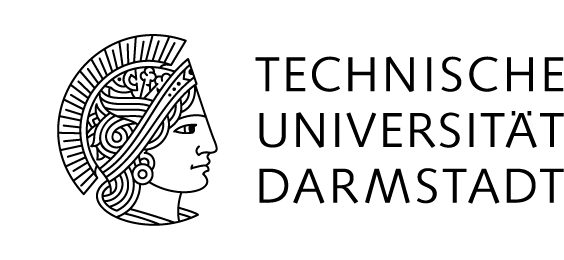Keynotes
Prof. Dr. Dagmar Sternad – From simple movements to Complex skills: A Task-Dynamic Approach to motor control
Wed Sept 28, 14.00-15.00
Abstract: How do humans coordinate their actions and interactions with the physical world? How do we learn new motor skills or re-learn basic behaviors after injury, such as reaching to drink from a glass without spilling? Much of traditional and current research on motor control and neuroscience has analyzed highly simplified movements in tightly controlled experimental paradigms to permit rigorous analysis. In contrast, movement and sport science have emphasized complex actions in highly skilled performers. To facilitate insights into complex actions our research has developed a task-dynamic approach that starts with analysis of how the task constrains and enables actions and their improvement with practice. Based on mathematical analyses of the modeled task, we study how humans develop strategies that meet complex task demands. Using three exemplary tasks, throwing a ball, rhythmic bouncing of a ball, and transporting a “cup of coffee”, we show that humans develop skill by: 1) finding error-tolerant strategies and channeling noise into task-irrelevant dimensions, 2) exploiting solutions with dynamic stability, 3) optimizing predictability of object dynamics. This inverse approach is the basis for developing propositions about the controller: We posit that complex actions are generated with dynamic primitives, modules that overcome substantial delays and noise in the neuro-mechanical system. Using these experimental platforms we have developed interventions that assess or help restore functional behavior in patients with neurological disorders.
Presenter: Dagmar Sternad received her BS in Movement Science and Linguistics from the Technical University and Ludwig Maximilians University of Munich and her PhD in Experimental Psychology from the University of Connecticut. From 1995 until 2008, she was Assistant, Associate, and Full Professor at the Pennsylvania State University in Integrative Biosciences and Kinesiology. Since 2008, she holds an interdisciplinary appointment as full professor in the departments of Biology, Electrical and Computer Engineering, and Physics at Northeastern University in Boston. She is member of the Center for Interdisciplinary Research on Complex Systems at Northeastern. Her research is documented in over 100 publications in peer-reviewed journals, book chapters, and several books. She has editorial appointments in several scientific journals and is regular member of an NIH study section. Her research has been continuously supported by the National Institute of Health, National Science Foundation, American Heart Association, Office of Naval Research, and others. Profile
Prof. Dr. Aaron Coutts – Monitoring athlete training: theoretical concepts and practical applications
Thu Sept 29, 9.00-10.00
Abstract: Precise quantification and control of an athlete’s training load is essential for optimizing performance, maintaining health and reducing injury risk. Indeed, high performance athletes now invest significant time and resource into monitoring their training. Common input measures into these monitoring systems include measures of training load, player wellness and athlete ‘readiness’ (i.e. fitness/fatigue status). An athlete’s training load has many constructs (i.e. internal and external load variables) and selecting the most appropriate variables for monitoring depends on the specific nature of the sport. Until recently the quantification of external load was difficult, but with the development of various microtechnologies (i.e. Global Positioning Systems (GPS), accelerometers, gyroscopes etc.), relatively precise measures are now easily obtained. In contrast, the internal training load has been relatively simple to assess through heart rate and/or the athletes rating of perceived exertion (RPE) measures. When the internal and external training load data are integrated and interpreted in the context of other factors such as the training goals and athlete’s readiness measures, informed decision on future training can be made. This presentation will examine the theoretical basis of athlete monitoring, describe the validity and reliability of common input variables into these systems (i.e. training load, fitness and fatigue measures) and provide examples of how these have been applied to improve the training process. Finally, practical recommendations for implementing athlete systems in the field will also be provided.
Presenter: Aaron is a Professor in Sport and Exercise Science at the University of Technology Sydney (UTS). He has published more than 120 scientific papers which focus on improving our understanding of the factors that affect performance in sports. He has specific interest in conducting applied research and providing evidence-based recommendations for athlete monitoring, performance analysis and training design. Aaron currently consults to several top-level professional sporting teams and is a member of International Advisory Board for the Nike Performance Council. Aaron has also been the recipient of an Australian Teaching and Learning Citation for outstanding contributions to student learning in sport and exercise sciences. He is also an Associate Editor for the International Journal of Sports Physiology and Performance and the Journal of Sports Sciences: Science and Medicine in Football. Aaron is also an accredited Sport Scientist and a Director of Exercise and Sport Science Australia (ESSA). Profile
Prof. Dr. Jan Peters – Motor Skill Learning: From Simple Skills to Table Tennis and Manipulation
Thu Sept 29, 14.00-15.00
Abstract: Autonomous robots that can assist humans in situations of daily life have been a long standing vision of robotics, artificial intelligence, and cognitive sciences. A first step towards this goal is to create robots that can learn tasks triggered by environmental context or higher level instruction. However, learning techniques have yet to live up to this promise as only few methods manage to scale to high-dimensional manipulator or humanoid robots. In this talk, we investigate a general framework suitable for learning motor skills in robotics which is based on the principles behind many analytical robotics approaches. It involves generating a representation of motor skills by parameterized motor primitive policies acting as building blocks of movement generation, and a learned task execution module that transforms these movements into motor commands. We discuss learning on three different levels of abstraction, i.e., learning for accurate control is needed to execute, learning of motor primitives is needed to acquire simple movements, and learning of the task-dependent „hyperparameters“ of these motor primitives allows learning complex tasks. We discuss task-appropriate learning approaches for imitation learning, model learning and reinforcement learning for robots with many degrees of freedom. Empirical evaluations on a several robot systems illustrate the effectiveness and applicability to learning control on an anthropomorphic robot arm. These robot motor skills range from toy examples (e.g., paddling a ball, ball-in-a-cup) to playing robot table tennis against a human being and manipulation of various objects.
Presenter: Jan Peters is a full professor for Intelligent Autonomous Systems at the Computer Science Department of the Technische Universitaet Darmstadt and at the same time a senior research scientist and group leader at the Max-Planck Institute for Intelligent Systems, where he heads the interdepartmental Robot Learning Group. Jan Peters has received the Dick Volz Best 2007 US PhD Thesis Runner-Up Award, the Robotics: Science & Systems – Early Career Spotlight, the INNS Young Investigator Award, and the IEEE Robotics & Automation Society‘s Early Career Award. In 2015, he was awarded an ERC Starting Grant.Jan Peters has studied Computer Science, Electrical, Mechanical and Control Engineering at TU Munich and FernUni Hagen in Germany, at the National University of Singapore (NUS) and the University of Southern California (USC). He has received four Master‘s degrees in these disciplines as well as a Computer Science PhD from USC. Profile
Prof. Dr. Maarten F. Bobbert – Possibilities and limitations of musculoskeletal modelling and optimization in sports and rehabilitation
Fri Sept 30, 9.00-10.00
Abstract: Musculoskeletal modelling and optimization (MMO) involves making a model of the musculoskeletal system that has muscle stimulation as the only independent input, and optimizing this stimulation over time to make the model perform a task of interest, for example a maximum-height jump. When studying phenomena observed in sports, MMO has two important advantages over performing experiments in human subjects. First, due to the optimization of muscle stimulation over time, we are certain that the model performs maximally in all conditions. Humans, by contrast, may perform submaximally in one or more experimental conditions because of suboptimal control. Second, if a difference in maximal performance of a model is found between conditions, the mechanism that caused it can be completely unraveled because the mechanical output of all the elements is known, which is not the case in humans. By virtue of MMO we now understand, for example, why greater jump height can be reached in a countermovement jump than in a squat jump, and why more work per leg can be produced in one-leg jumps than in two-leg jumps. MMO has also been useful in the field of motor control, where it has helped us explore how control of a multi-link inverted pendulum with nonlinear actuators might be organized for tasks like jumping and hopping. Furthermore, MMO has played a role in the development of technical improvements in sports, like the klapskate. In this lecture, examples will be given of insights that have been gained with the help of MMO. Also, the question will be raised whether MMO can be applied to improve the performance of human subjects in sports and rehabilitation, and the possibilities and limitations of MMO for this application will be discussed.
Presenter: Maarten Bobbert is associate professor at the Faculty of Human Movement Sciences of the VU University in Amsterdam, The Netherlands, where he completed his Ph.D. study on muscle functioning and coordination in vertical jumping in 1988. His teaching includes courses on neurosciences, neuromusculoskeletal modeling and biophysics of locomotion, and his research interests are in the design of musculoskeletal systems and the organization of control. In Maarten's studies, experiments on humans and animals are intertwined with simulations of movements using models of musculoskeletal systems that attempt to capture the essence of anatomical and physiological properties. Profile





